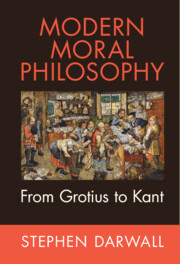Thomas Reid has the unusual distinction of arriving at a metaethical position very much like G. E. Moore's via a route very similar to that employed by the Kantians. That is, Reid embraces a version of nonnaturalist moral realism by appeal not to open question-style considerations but to a particular account of agency. In this essay, we reconstruct Reid's agency-centered argument for his constitutivist version of moral nonnaturalism, highlighting its commitments. Having presented Reid's argument, we close by considering a prominent contemporary Kantian view, namely, Christine Korsgaard's, and identifying where, despite their common commitments, Reid and Korsgaard part company. The comparison, we suggest, is instructive because it allows us to see more clearly why the link between agency-centered approaches to ethical theorizing and nonrealist, constitutivist views of morality, such as Korsgaard's, is deeply contingent.


